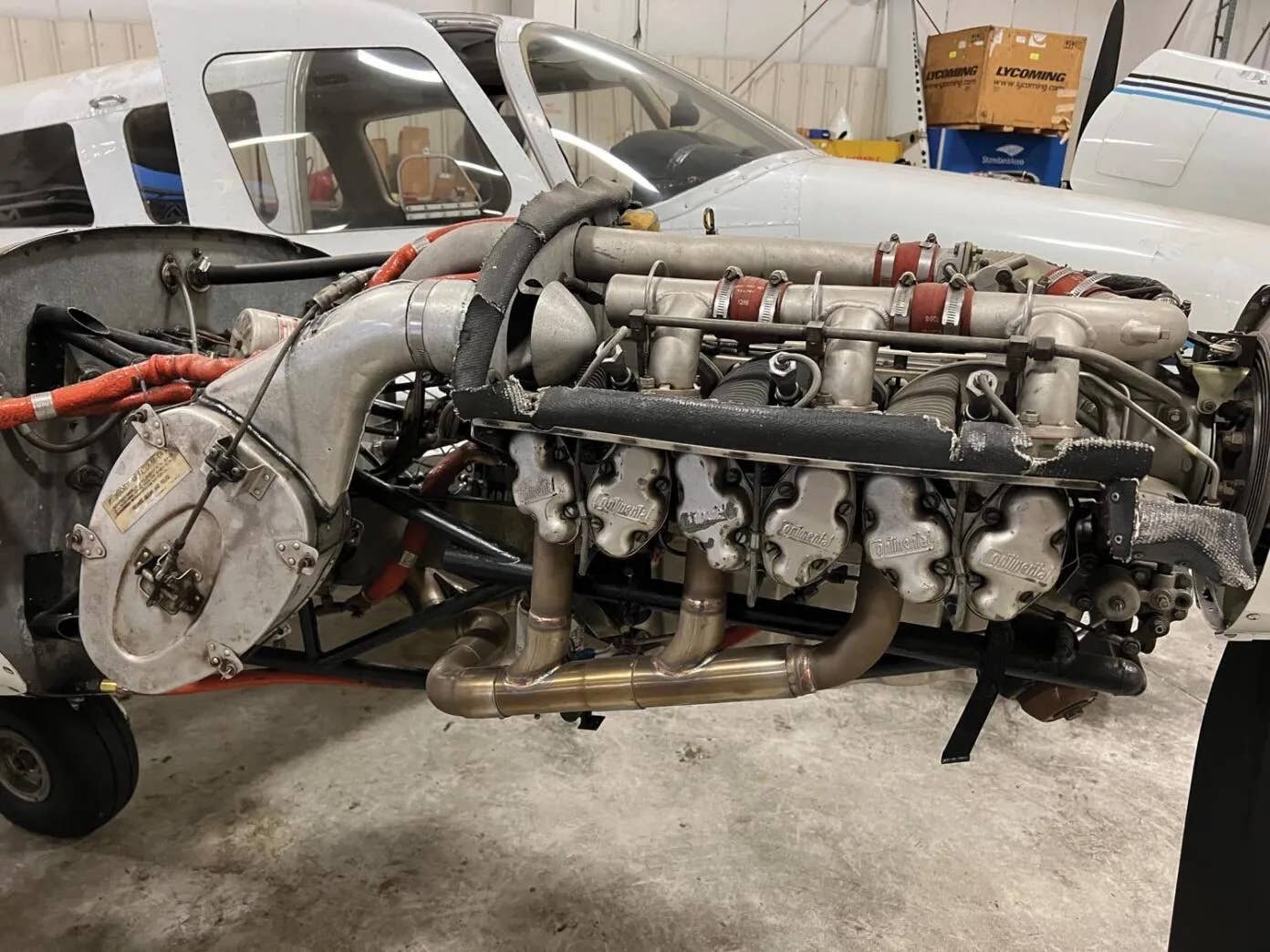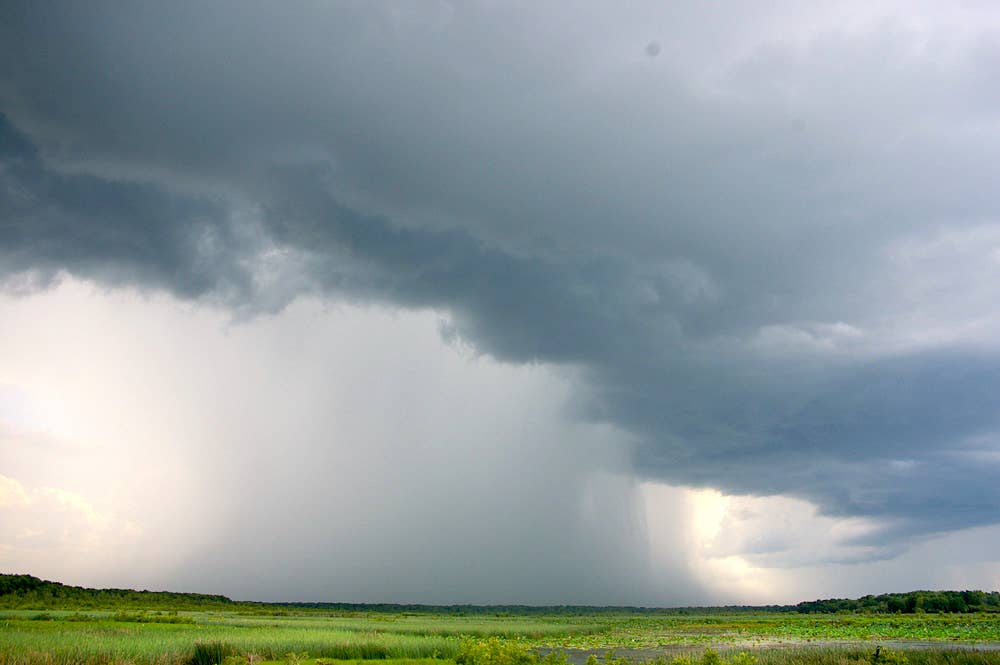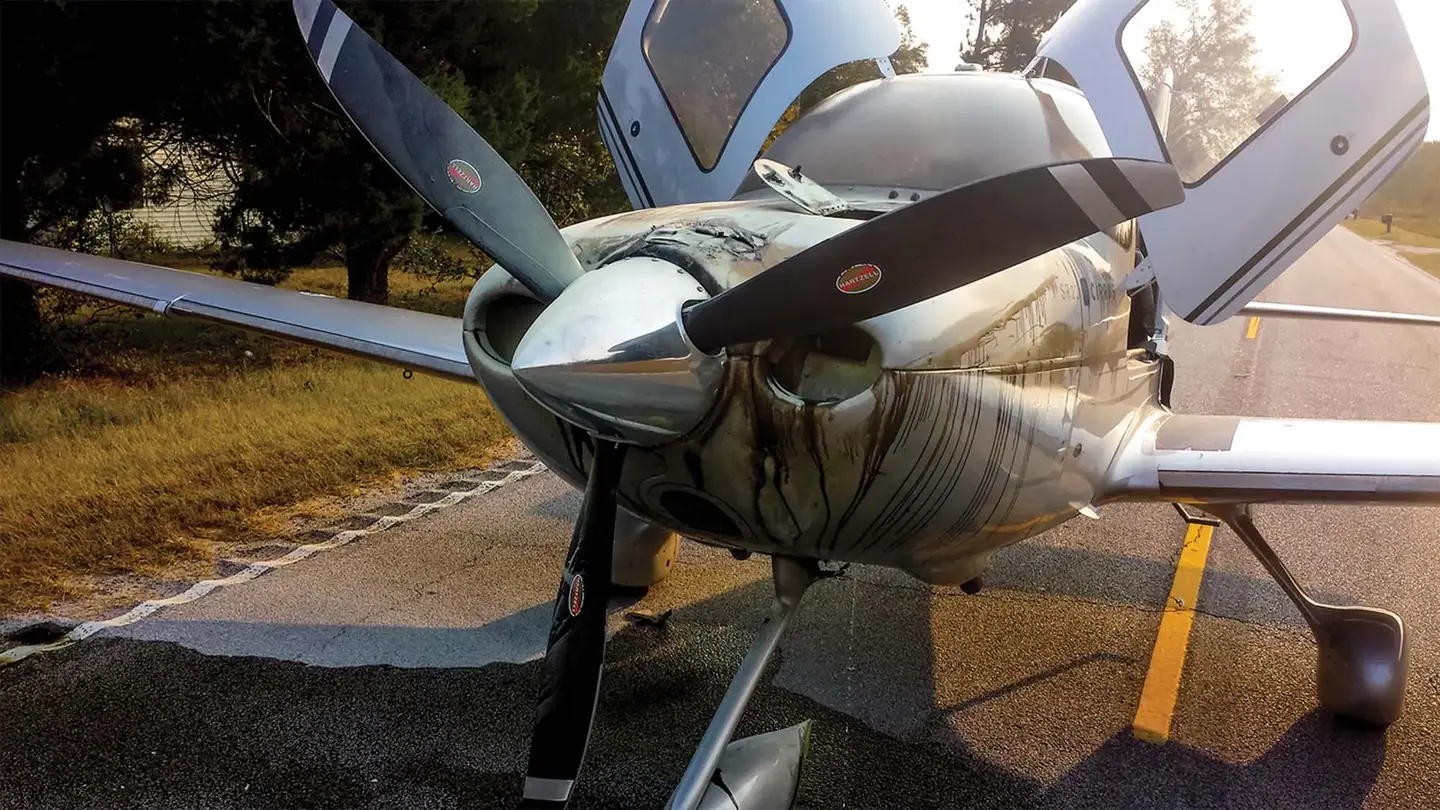CEO of the Cockpit #59: Do It for the Love of the Game
Passengers crammed into the back of an airliner may think otherwise, but airline pilots do end up working a lot of hours each month. So why would AVweb’s CEO of the Cockpit take on an extra flight filled with steroid-enhanced athletes?
You don't land a Champ or a Luscombe in the same manner as you land a B767 or an MD-88, but the principles are the same. Both kinds of airplanes require your full attention until you have them parked, chocked and shut down.Landing a tail-dragger only begins with the touchdown. Once the tires kiss the grass or pavement that is when the real fun can begin. There are a plethora of surprises in store for transport jet jocks, too, should they ignore the fickle ways of their aircraft.A lot of airline pilots forget this and tonight in Cleveland we are suffering the effects of such a misunderstanding by a pilot who works for "Brand X." He has forgotten a very important rule about landing a Long Beach Death Tube on a wet, rubber-covered runway in a strong crosswind.The rule, of course, is this: No matter how many line-check airmen, simulator instructors and aircraft manufacturer representatives tell you that you should have both engines out of reverse by 80 knots, you should leave the damn things in until you are sure you can make a stop or can at least exit the slippery part of the runway.There have been many times during my now-over-with-career as a Mad Dog driver that I left the reversers in during an icy landing and even used differential reverse to make the turn-off. It is easier to accept the chance of FOD than the certainty of an NTSB hearing should you slide off the end of the runway into the mud as this guy just did.
America's Game?
We were going to be late getting off for our flight to LAX anyway. Yes, I know that probably no airline in the free world actually regularly commits acts of aviation between the cities of Cleveland and Los Angeles. Normally we don't either, but this flight is a baseball charter. We were carrying the Indians or the Bears or the Honeybees or whoever to their next very important game in Los Angeles.I know that a lot of people love baseball. They follow their teams, buy their branded stuff and can cite statistics about the game until your eyes bleed and you begin considering sticking a sharpened number two pencil through both of your eardrums just so you wouldn't have to hear this cretin quote the number of times that Joe Schlubb homered off of ambidextrous albino Columbians who have an earned-run average of less than whatever.You may have arrived at the assumption that I would rather watch houseflies fornicate or white primer dry on a piece of scrap drywall than sit through an entire baseball game. Sober anyway. You would be correct in that assumption.So why do I find myself delayed, grounded and held back by a wayward Brand X aviation ninja and a team of high-school graduates in their mid-20s who can hit off a left-handed pitcher 27 percent of the time in night games with an attendance of less than 20,000? I mean, besides the facts that the active runway has a static MD-88 display half way on it with the other half sticking in the mud and the baseball game is in rain delay?I needed the money, that's why.I picked this trip up. I volunteered for it.
Because We Get Paid, Fool ...
Since the dawn of time, airline pilots have been paid by the minute, and not just any kind of minute will do. They must be minutes during which all the airplane's doors are closed and the beacon is on. Sure, we have (or, to be more honest, used to have) duty rigs which paid us at least partially for our time on duty; but when it comes right down to who buys the yachts and who gets the check, we are paid simply by the time we spend in the seat operating the airplane.This is why every bubble-headed, mugwort commentator and so-called "aviation or airline expert" says we only work 75 hours a month. The public then gets outraged. "Why, I have to work 40 hours a week at the Wiener Hut," they think. "How dare these overpaid, prima-donna pilots only work a week and a half and get a months pay! I'm going right home to my trailer and send a card to my Congressperson!For the average, good, productive day of flying where we get six hours of actual pay time, we average a 10- to 12-hour long duty day. More often 12, sometimes 15 plus 30 minutes, which is our actual drop-dead time, unless we are already in the air, which is another story.Let's average it out to 11 hours of being on duty for six hours of flying time. With an average month being 75 hours of flying time, it averages out to about 138 hours at work a month. Still not bad, considering that only adds up to about 34 hours a week. Much better than a gig at the Weiner Hut.This, of course doesn't take into account the fact that you are away from home laying over for at least 12 nights a month, sometimes 15. If you add in 14 hours as the average layover and use the minimum of 12 nights, you arrive at an additional 168 hours a month.You aren't actually fondling a throttle during this time and a lot of layovers are a lot of fun, but you aren't exactly spending quality time with your wife and kids. Nor are you doing the home maintenance, like putting air in your home's tires and doing the social gad flying that our friend at the Weiner Hut is doing, either.Added all together, our total hours away from kith and kin comes to about 75.5 hours a week, for which we actually get paid for roughly 19 hours.Sure, like the baseball fans, we do it for the love of the game -- in this case, the love of flying -- but we take on these extra gigs because every extra dollar helps.
The CEO Isn't Fearless
A lot of people might say that I don't like baseball because as a child I never made so much as a little league team. They might also cite the numerous times in my youth when I preferred drawing airplanes to having my over-muscled father hurl baseballs at the speed of plaid at my still-developing facial bone structures. In other words, they would say I am afraid of the ball.You are damn right I am afraid of the ball. I also don't juggle operating chain saws, swim with ravenous sharks or instruct brand-new multi-engine students. This is more survival instinct than fear. I know you rarely hear about somebody being killed by a baseball or a Piper Apache, but it does happen, so why gamble with high-speed hand-thrown objects or underpowered aircraft coupled with inexperienced pilots?Plus, by the time you reach my stage in life, you don't have much left to prove. I would wager that a large majority of the jeering kids who in my pre-teen youth would make fun of me for ducking fastballs would poop their pants if they had to fly through some of the stuff I've had to deal with during the past 30 years. Everybody is afraid of something. Flying over the Atlantic Ocean at night in a winter storm doesn't bother me; VMC demonstrations on hot days and small, hard, fast-flying, face-bound objects do.Other than the possible peril of one of these baseball kids tossing a ball at my balding head as they enter my Atari Ferrari, I really have a soft place in my heart for sports charters. The people are friendly, especially if they just won. They are generally well-behaved and the food is to die for.It's true: One of the perks of a sports charter is the fact that we don't feed these young athletes the same swill that we feed the general populace (when we bother to feed them at all). Nope. We give these sports gods whatever they want. Cheeseburgers? No problem. Steaks, lobsters, tacos, pizzas and 20 kinds of ice cream? We got you covered.Most of the food goes untouched because the little darlings go right to sleep, which means that the flight crews not only get paid, they get fed. There is nothing quite like a four-hour, three-lobster and two-cheeseburger flight to the west coast.
More Good News
0)]Also, since sports charters tend to leave at really weird times, you get better ATC handling and more direct-to-destination routes. This one looks like it is going to be a really great night for great ATC handling, since the airport people just informed our people that it will be 2 a.m. before the runway is clear.The team is on their way. Either the rain stopped or they gave up. I really don't care, for reasons I've already mentioned. What their arrival means to me is that we'll have them onboard maybe for an additional three hours.This may not present a problem to you, but for my flight crew it means these guys will be eating our food for those three hours and we will probably miss out on getting even a single cheeseburger and we can just forget about the cheesecake and the ice cream sundaes.It is time for a command decision and I make it. Since we'll be on duty all night, I suggest to the senior flight attendant that she might consider breaking loose a few of those tasty meals for us to scarf down before the boys of summer arrive. We'll leave enough for them to stuff their well-muscled and suntanned multi-millionaire faces, but at least we won't drop dead of low blood sugar over Twenty Nine Palms.So it is written, so it shall be done.
Saddle Up!
The rain is abating and the airport tug operators and airliner salvage workers (local three-oh-seven) have cleared the wayward Cajun Clipper off of our runway. We have all partaken of the unintended largess of the baseball team and have full bellies and happy outlooks.My co-pilot Tom is coming up to the cockpit now with the autographs of at least 10 of the people on the team who he idolizes. He took the charter for the love of the game, not for the money like I did. I'll no doubt have to listen to him go on and on about that three game series in Atlanta five years ago when his team went seven and three against a right-handed Cuban mesomorph named Raul.Even that doesn't bother me right now. I've got a tummy full of somebody else's lobster and a smooth, four-hour ride to look forward to. Besides, as hard as it is to believe, I bet from time to time co-pilots have had a hard time listening to me go on and on about something or other.Everybody has been onboard for two hours. Most of the kids in the back have already fallen asleep during our delay and the coaching staff is into their third or fourth cocktails. It is time to fire up the engines, set the flaps, taxi around the wreckage of that MD-88, and book.
Want to read more from AVweb's CEO of the Cockpit? Check out the rest of his columns.






